14 Inspiring Queer Protest Posters in Days of Rage from ONE Archives
| 06/06/23
By continuing to use our site, you agree to our Private Policy and Terms of Use.
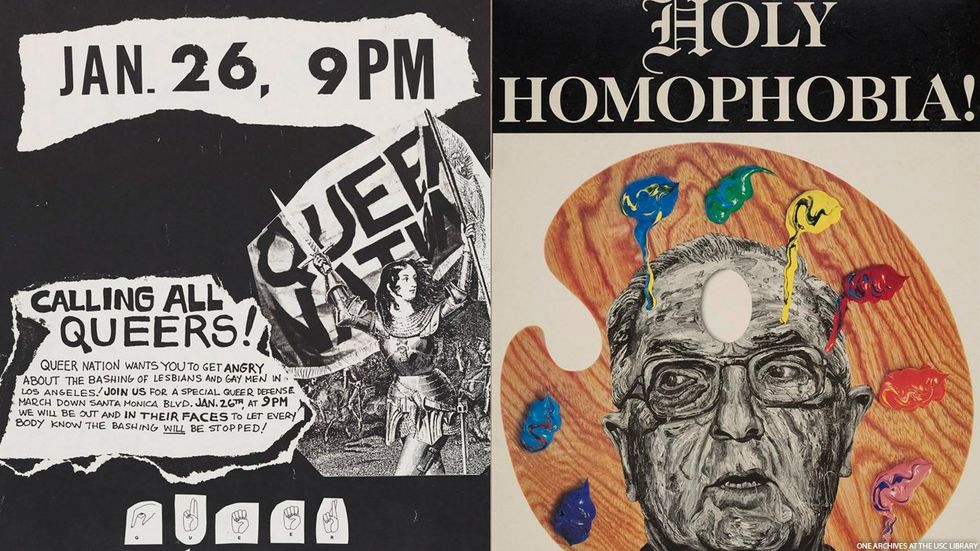
A selection of historical protest posters from ONE Archives at the USC Libraries tells the stories of LGBTQ+ activism over the decades, and shows how graphic artists can help inspire and organize their communities.
"Days of Rage" is a web exhibition that enlivens these posters through tactile analysis and storytelling, according to its website. "Grounded in the experiences of activists and graphic designers Alan Bell, Daniel Hyo Kim, Chandi Moore, Silas Munro, Judy Ornelas Sisneros, and Jordan Peimer, the exhibition positions LGBTQ+ graphic design as embodied in community realities and histories, producing subjective reflections on the interdependence of design and activism." It was curated by Andy Campbell and co-curated by Tracy Fenix and Austen Villacis, organized by ONE Archives Foundation, and made possible by a grant from Los Angeles County Department of Arts and Culture.
From demanding action on the AIDS crisis to calling out homophobic politicians, this exhibition honors LGBTQ+ people who made their voices heard.
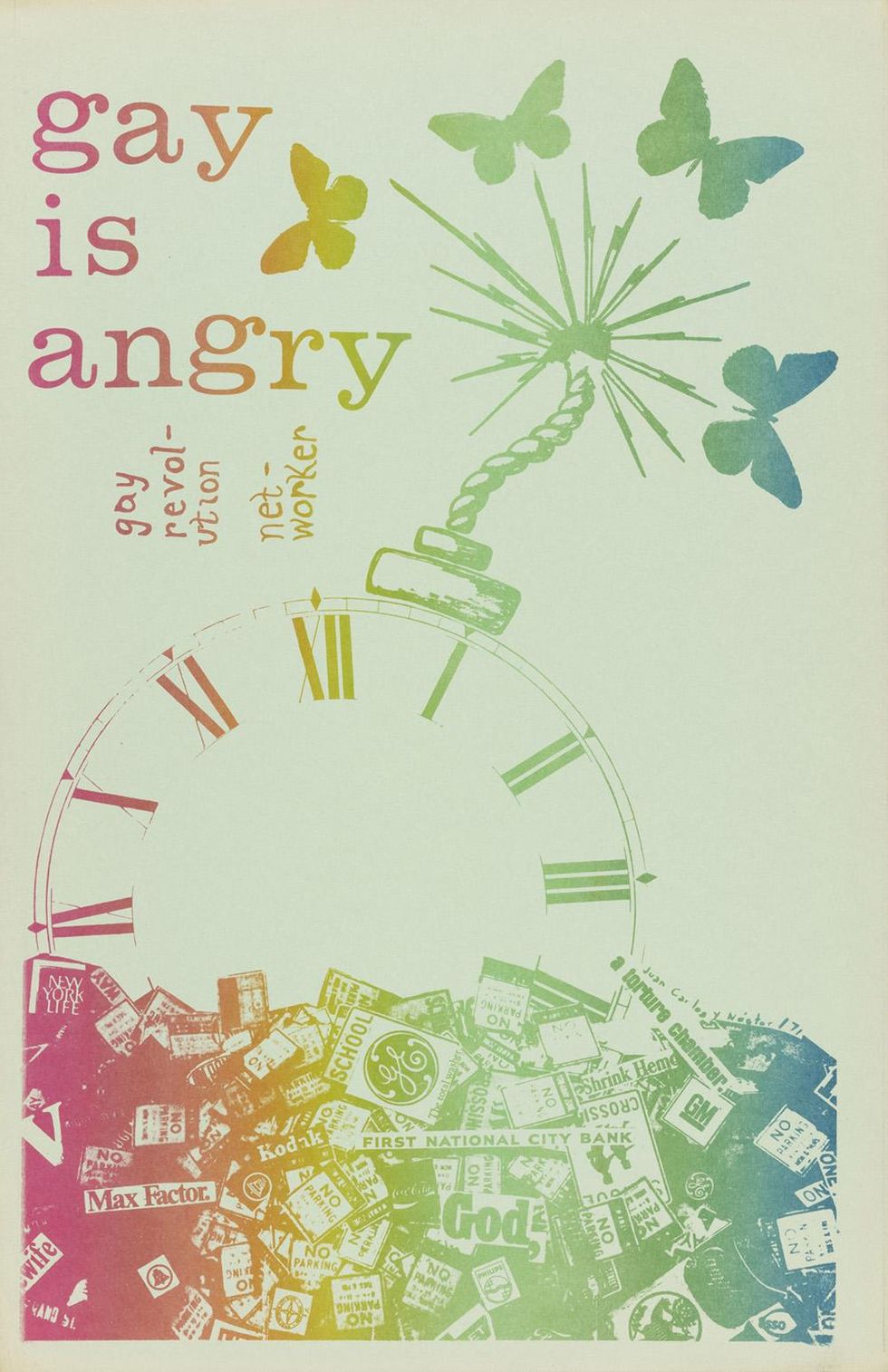
Curated by Andy Campbell and organized by ONE Archives Foundation
Designed by the artist and designer Juan Carlos Vidal and the poet Nestor Latronico in 1971, this poster served as the cover of a calendar produced by the Third World Gay Revolution, which was organized in 1970 by Black and Latino members of the Gay Liberation Front.
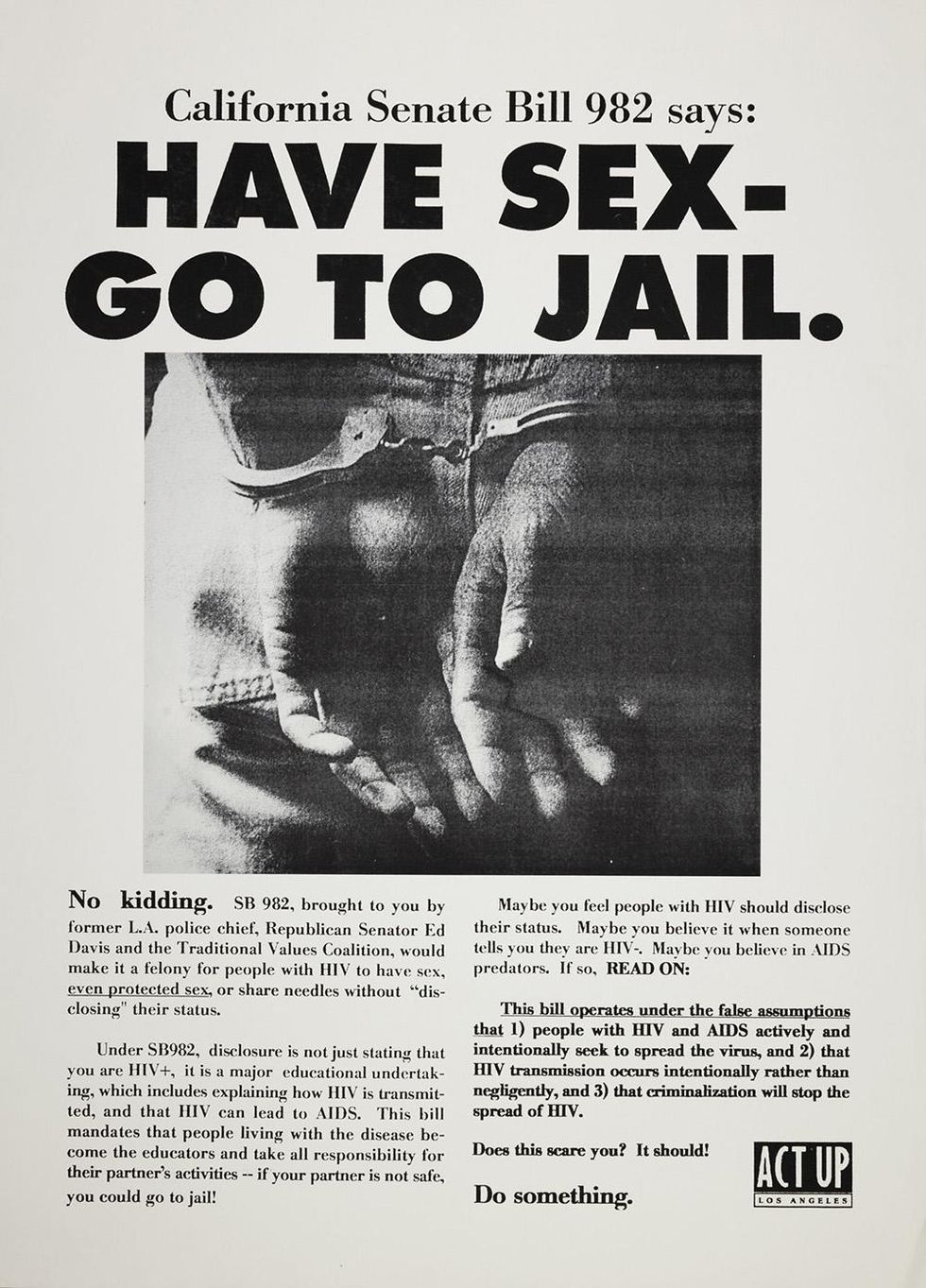
Curated by Andy Campbell and organized by ONE Archives Foundation
ACT UP/LA (AIDS Coalition To Unleash Power Los Angeles), founded in 1987, used this poster in 1991 to highlight the effects of criminalizing HIV-positive communities. The jarring imagery was meant to motivate LGBTQ+ activists to protest discriminatory policies that contributed to the marginalization of Black, Latinx, and trans communities.
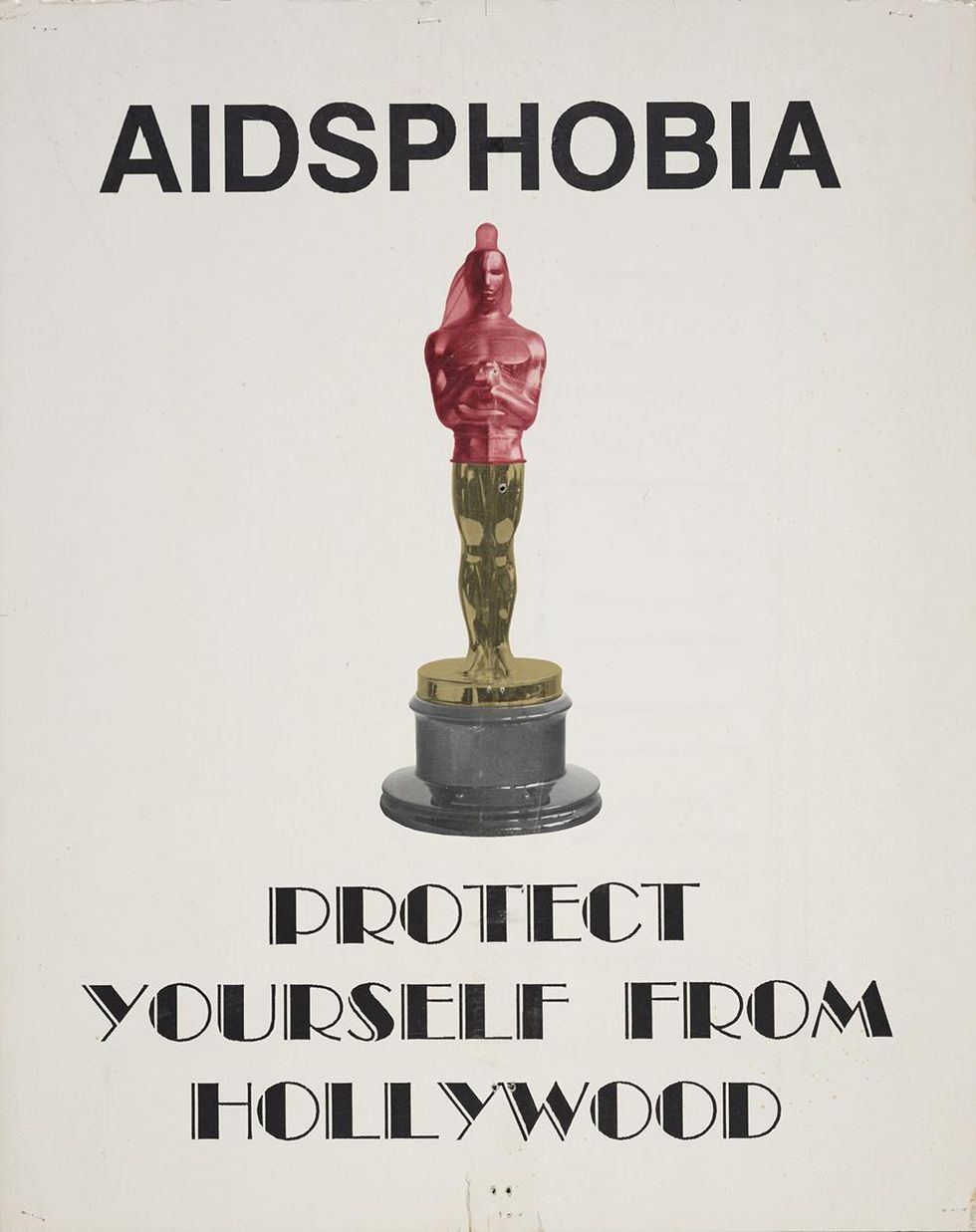
Curated by Andy Campbell and organized by ONE Archives Foundation
This poster was designed by Josh Wells and Jordan Peimer for ACT UP/LA in 1991, and was used in the days leading up to the Academy Awards to call out Hollywood for ignoring the AIDS epidemic. During the Oscars, a protester interrupted the proceedings with shouts of "a hundred thousand dead from AIDS!"
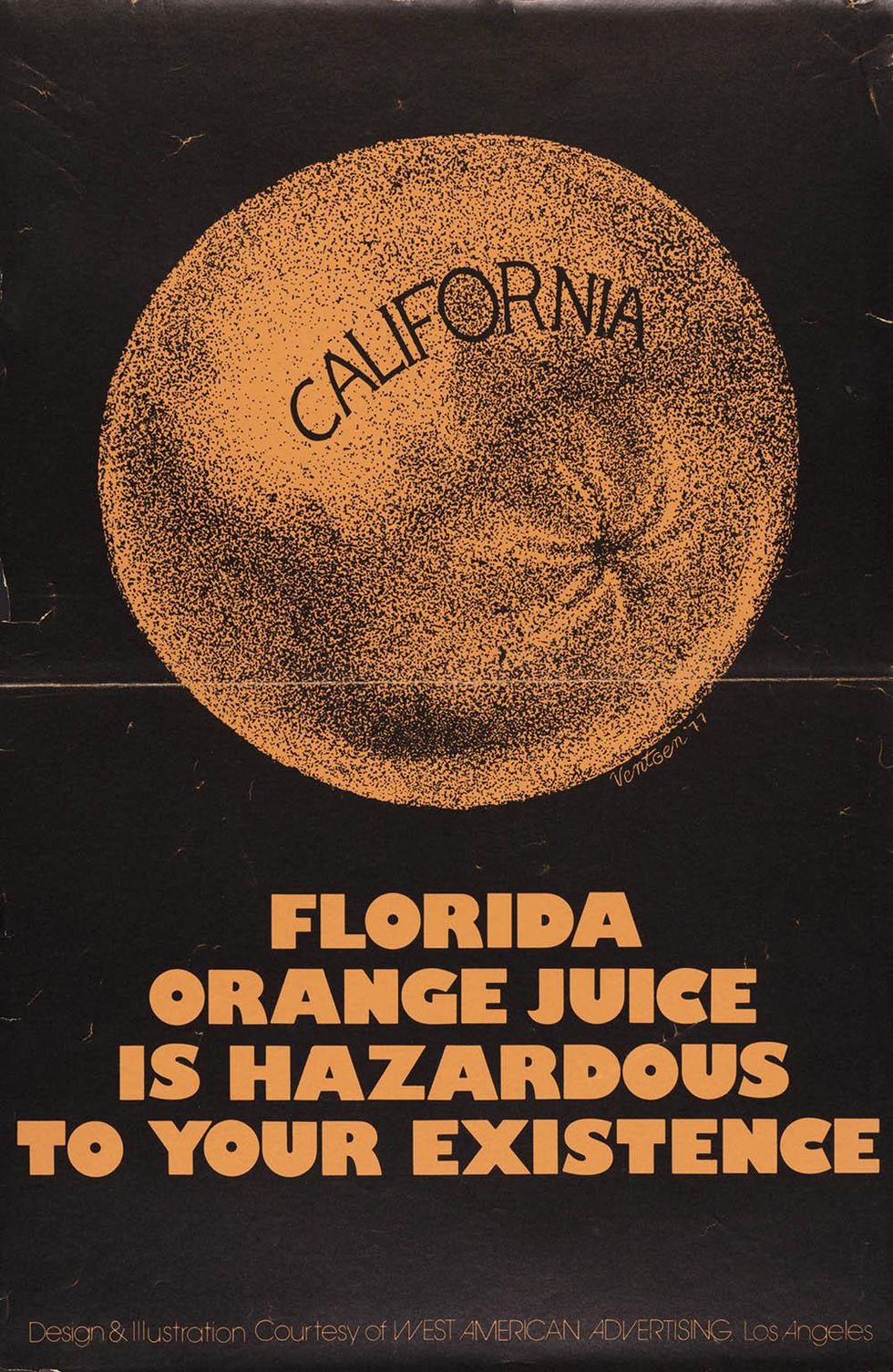
Curated by Andy Campbell and organized by ONE Archives Foundation
Homophobic singer Anita Bryant, a brand ambassador for Florida Citrus, led a campaign in 1977 to repeal an ordinance in Dade County, Florida prohibiting discrimination on the basis of sexual orientation. Frank T. Vetgen / West American Advertising responded with this poster to promote a national boycott of orange juice.
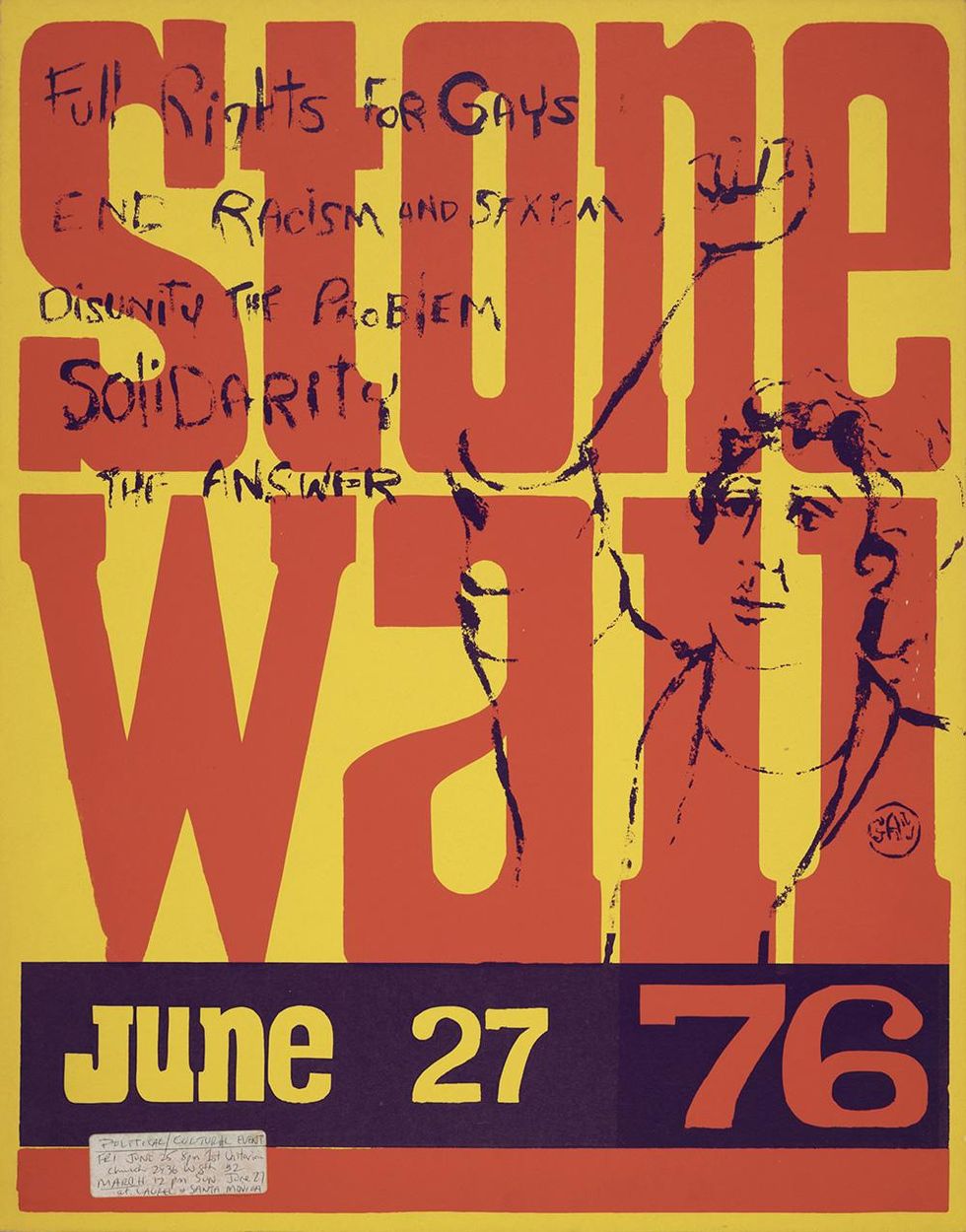
Curated by Andy Campbell and organized by ONE Archives Foundation
In 1976, seven years after the Stonewall uprisings in Greenwich Village in New York City, Los Angeles-based gay and lesbian activists sought to hold space for this historic moment. The text of the poster reads, "Full rights for gays; end racism and sexism; disunity the problem; solidarity the answer."
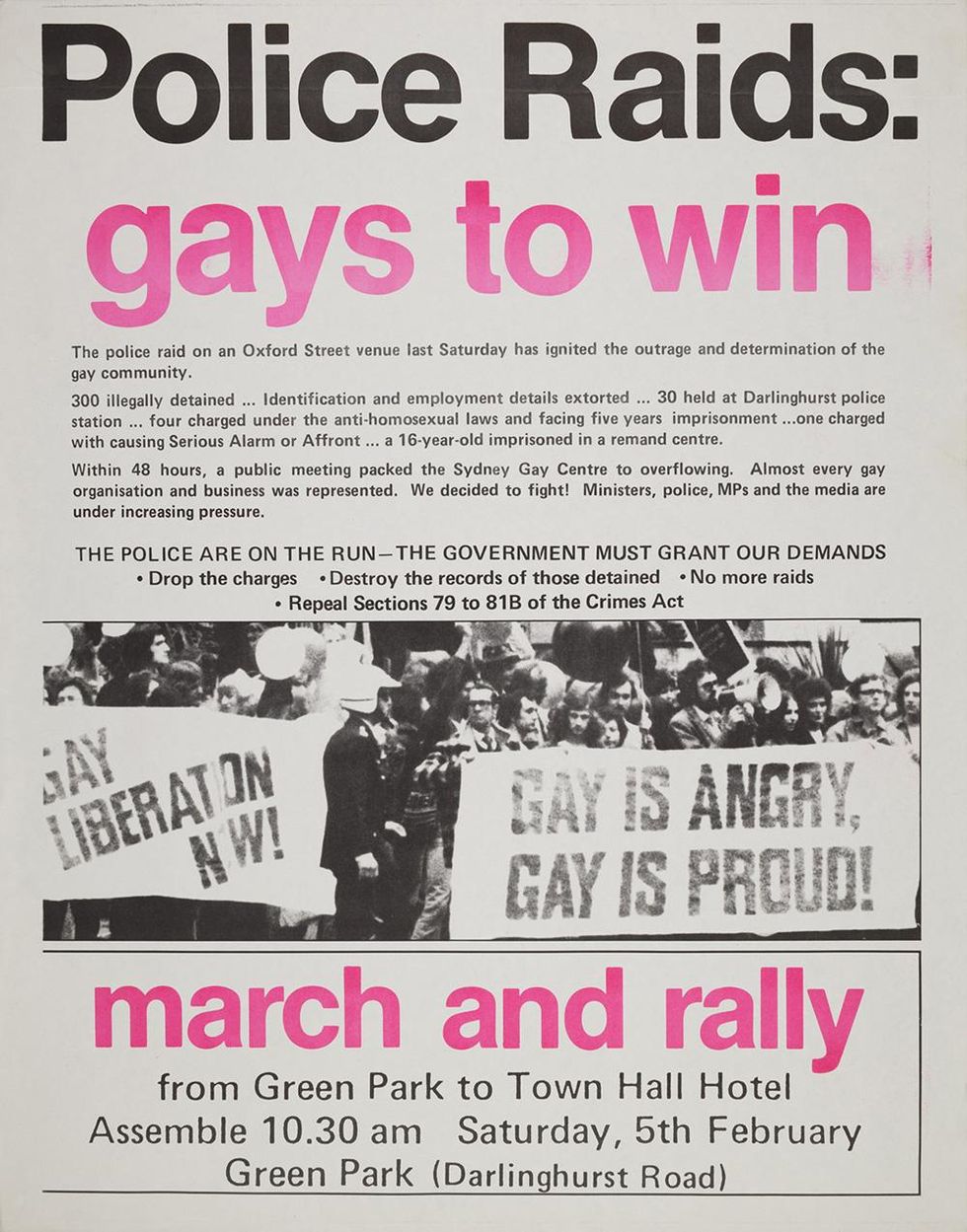
Curated by Andy Campbell and organized by ONE Archives Foundation
This poster was created for a protest taking place on February 5th, 1983 in Sydney, Australia. Activists were marching against gratuitous police force against the gay patrons of Club 80, a sex-on-premises venue in the Darlinghurst section of Oxford Street (Sydney's gay district), which happened just one week prior to this graphic being created.
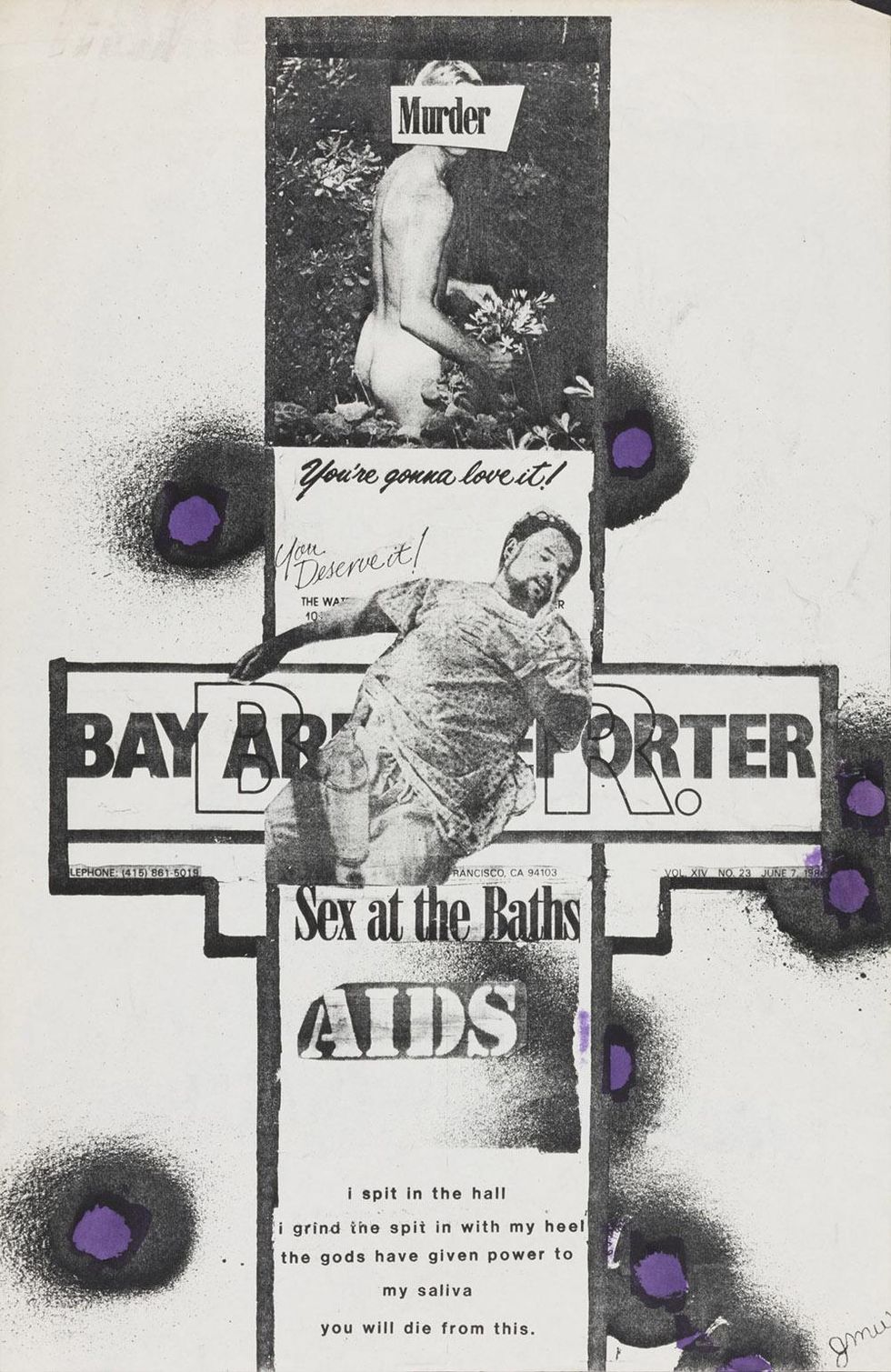
Curated by Andy Campbell and organized by ONE Archives Foundation
The AIDS crisis of the 1980s wrecked fantasies of sexual liberation for the gay community. This poster designed by JMW in 1984 used the language of advertising and consumption to speak about the epidemic, evincing a sense of frustration and powerlessness in dealing not only with the virus, but also with the accompanying heightened stigma and misinformation regarding transmission.
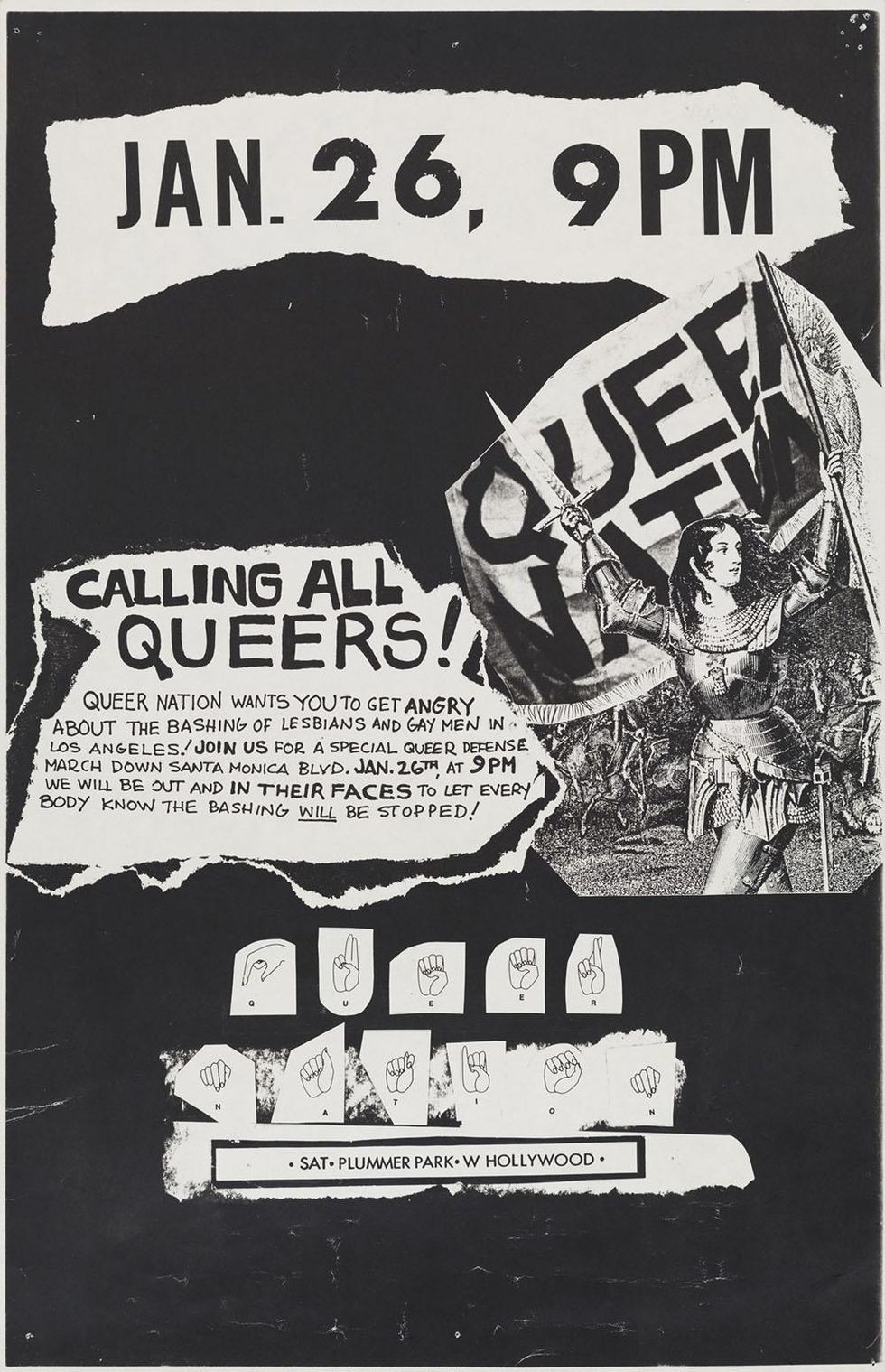
Curated by Andy Campbell and organized by ONE Archives Foundation
Designed by artist Kate Sorensen (a graduate of CalArts) in 1991, this is one of the earliest flyers made for the activist group Queer Nation LA. Using the language of DIY/zine production, Sorensen cleverly positioned her "call to arms" via the use of a 19th century engraving of Joan of Arc.
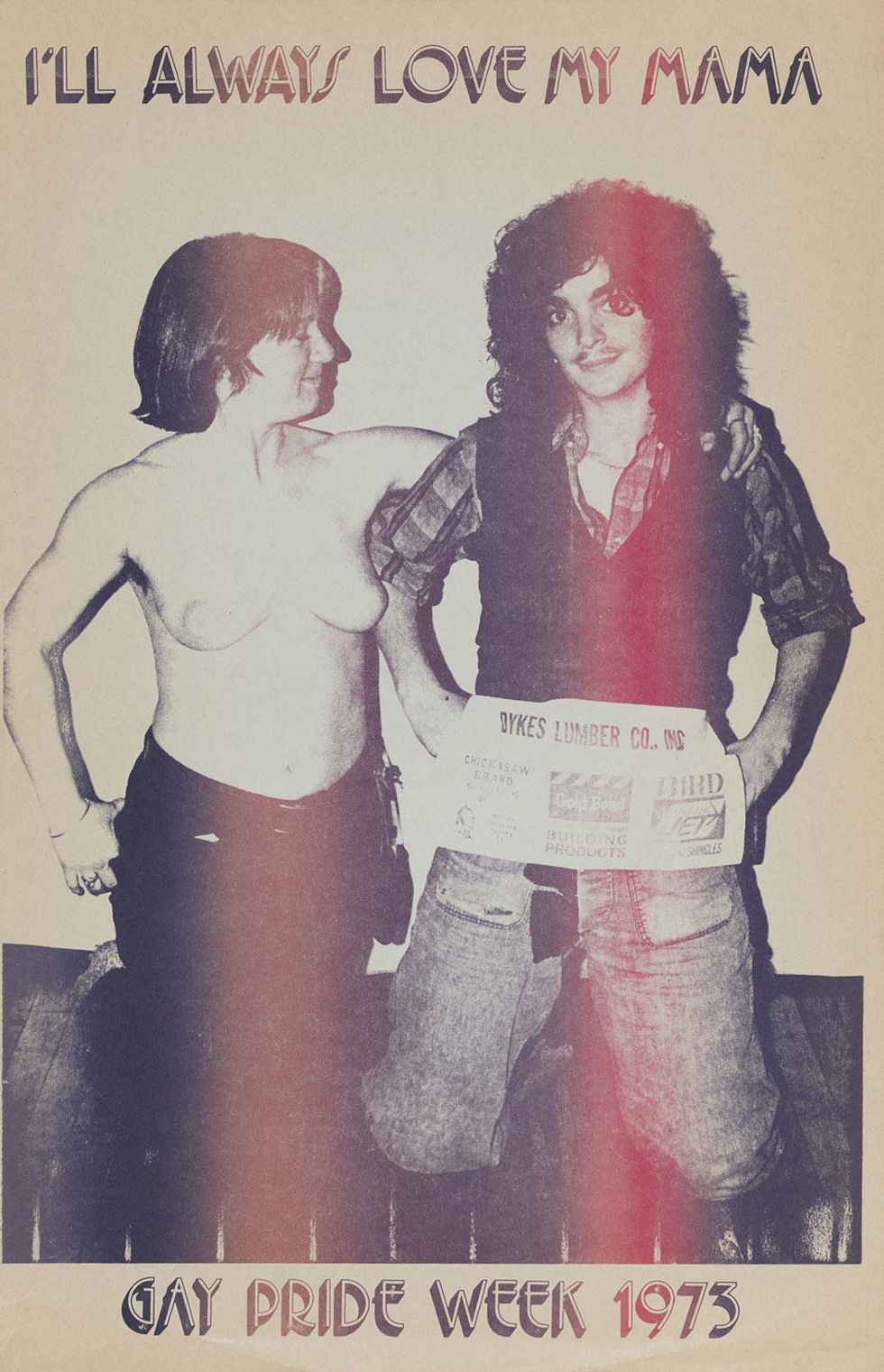
Curated by Andy Campbell and organized by ONE Archives Foundation
This cheeky 1973 poster playfully affirms the gendered spectrum of dykes and dyke sensuality and intimacy. The phrase "I'll always love my mama" captures the double entendre of "mothers" and its expansion of romantic and platonic dyke intimacies between caregivers, friends, and lovers.
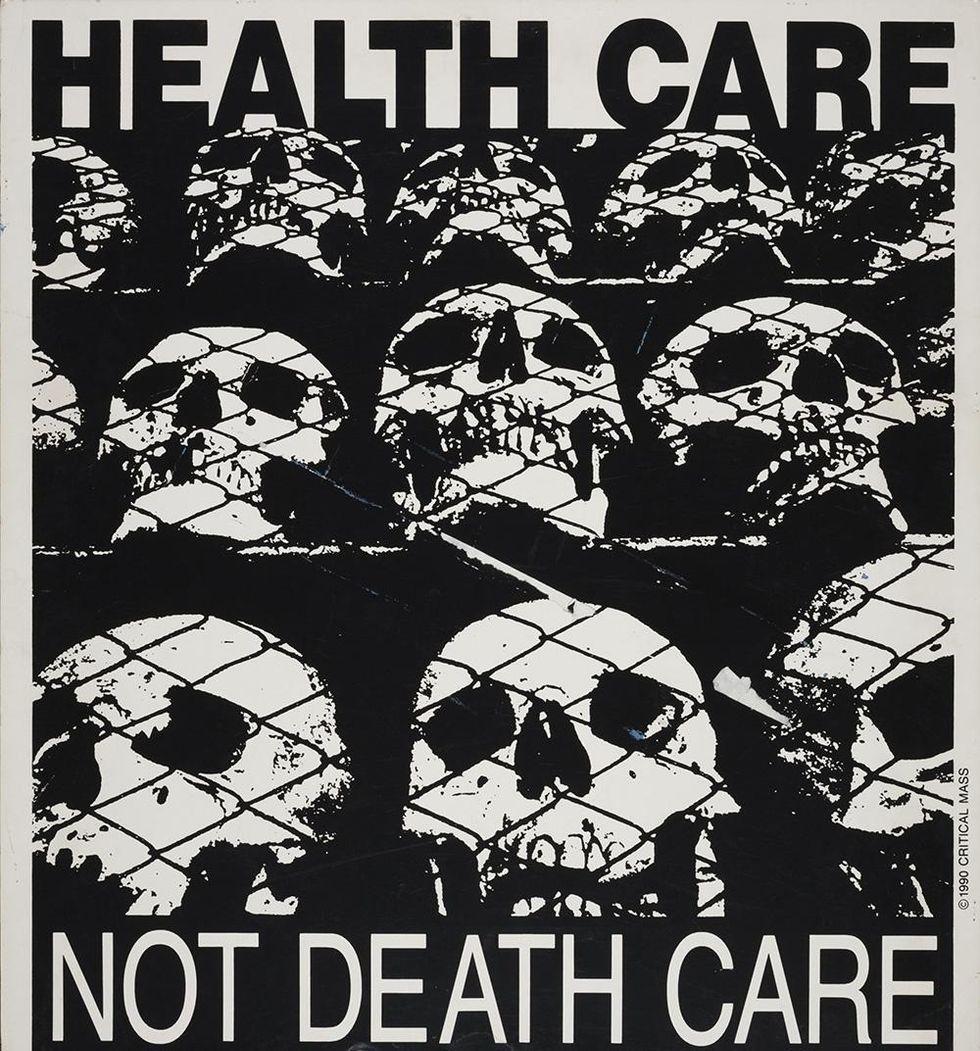
Curated by Andy Campbell and organized by ONE Archives Foundation
This poster was created by Critical Mass, the art/graphics committee of ACT UP Los Angeles, for the group's protest at Frontera women's prison in California's Chino Valley in 1990. It was inspired by Mary Lucey, a formerly incarcerated person in Frontera's segregated AIDS ward, whose maltreatment was part of the numerous abuses at the over-crowded facility.
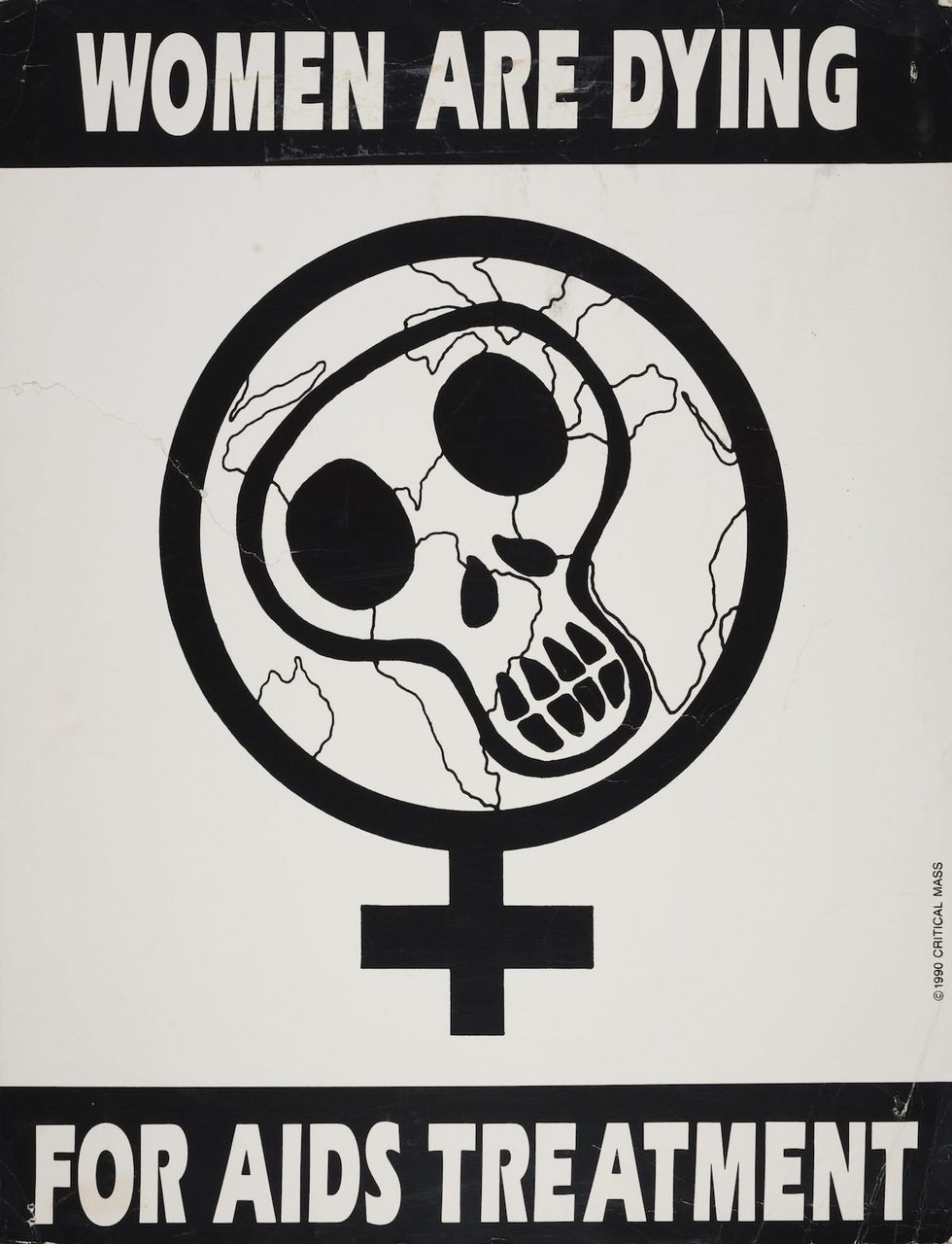
Curated by Andy Campbell and organized by ONE Archives Foundation
Similar to the Health Care Not Death Care poster, this graphic’s messaging relies upon powerful symbols—a skull, a globe, and the sign of Venus (long-used in feminist activism). Also produced by Critical Mass—with lettering and drafting by Ellen Yellowbird—this graphic was used in a protest targeting the Centers for Disease Control (CDC) in Atlanta in December, 1990.
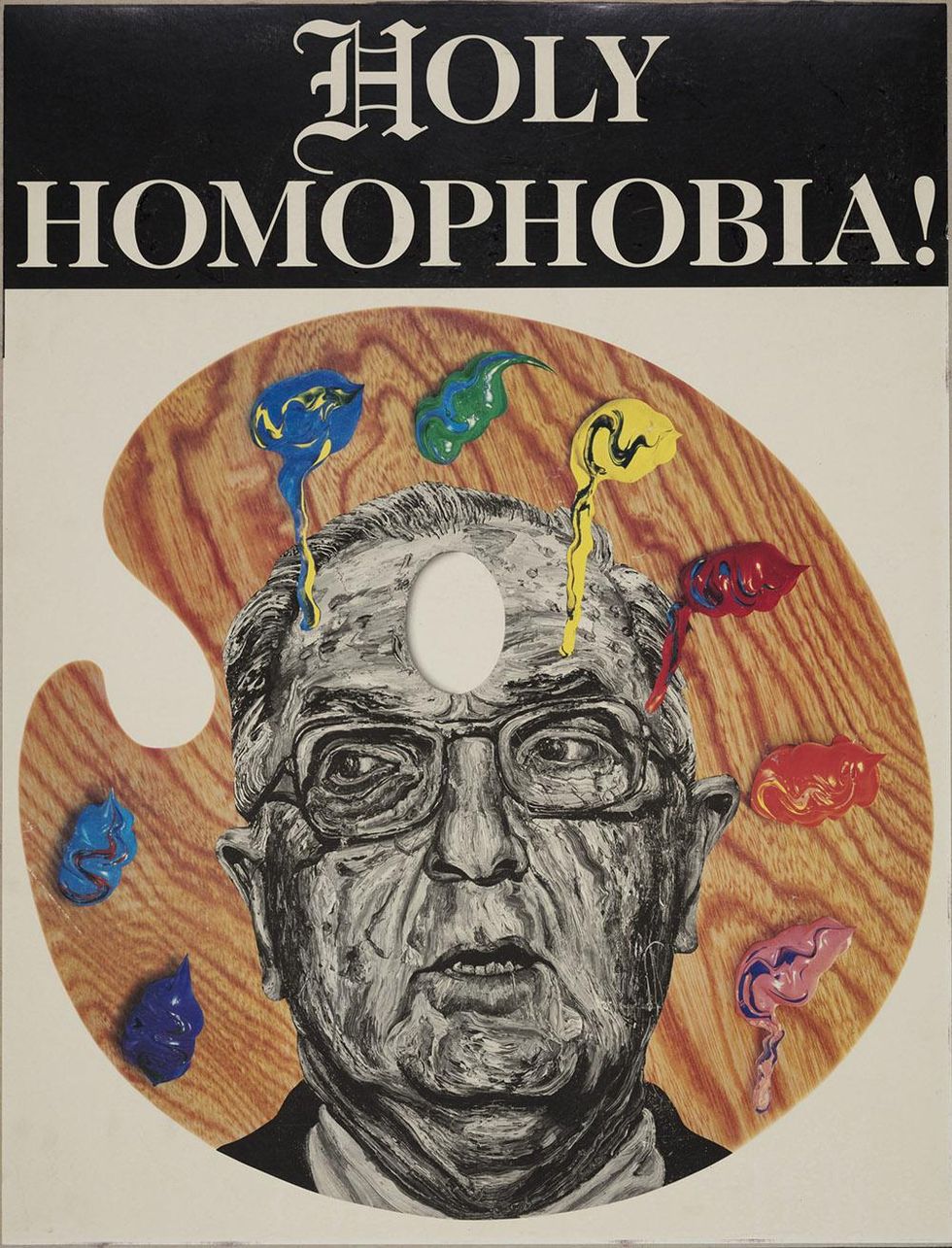
Curated by Andy Campbell and organized by ONE Archives Foundation
As one of the mainstays of the Los Angeles street art scene in the 1980s and 1990s, Robbie Conal was known for his satirical images calling out hypocrisy and skewering right-leaning political figures. Here he reproduced the visage of Senator Jesse Helms from North Carolina, creating a damning portrait of the sanctimonious language the legislator used to agitate for his homophobic worldview.
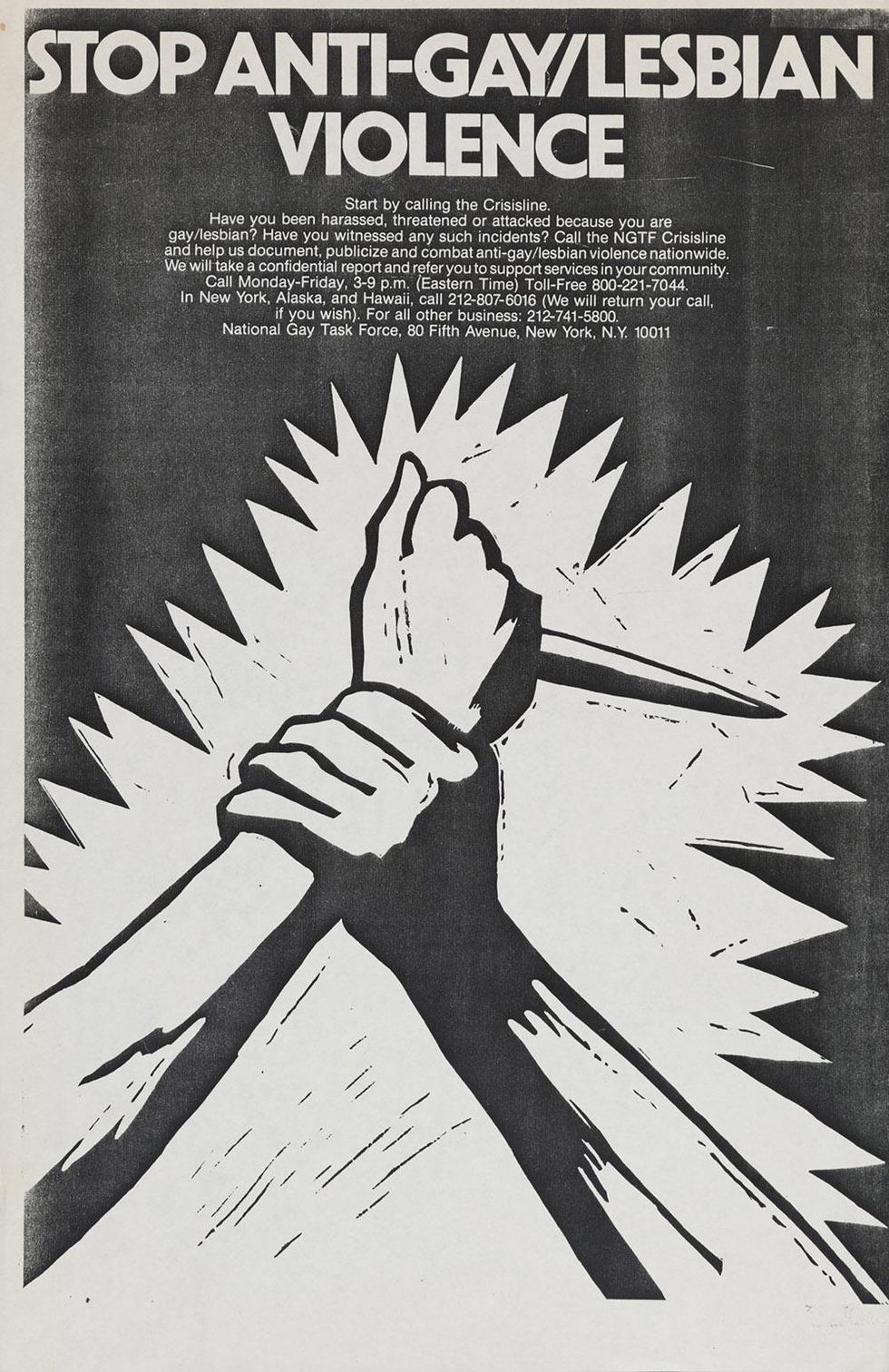
Curated by Andy Campbell and organized by ONE Archives Foundation
In 1982, the National Gay Task Force in New York initiated a national support hotline for gay and lesbian people in crisis. This poster, a photocopy of a flyer, emphasizes the charged nature of direct violence, intervention, and support for gay and lesbians.
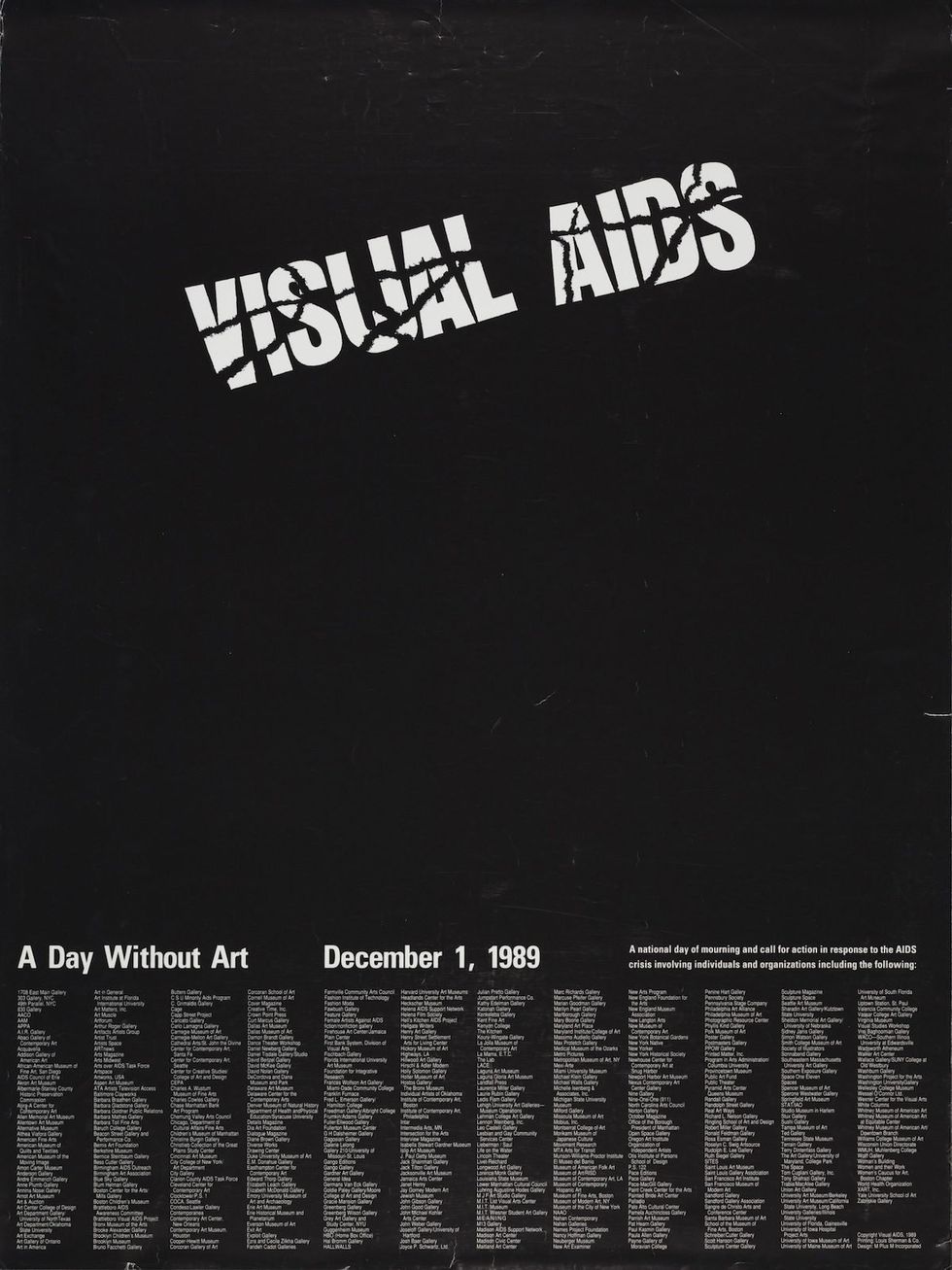
Curated by Andy Campbell and organized by ONE Archives Foundation
Overwhelmed by grief, Visual AIDS’ bold and graphic aesthetic visualizes the chaotic silence of loss in this 1989 poster promoting the first Day Without Art event: a national call for mourning and action in response to the AIDS crisis. The dozens of participating art institutions listed in small stacked columns at the lower bottom of the posters emphasizes the devastating impact of artists lost due to AIDS-related complications during the late 1980s.